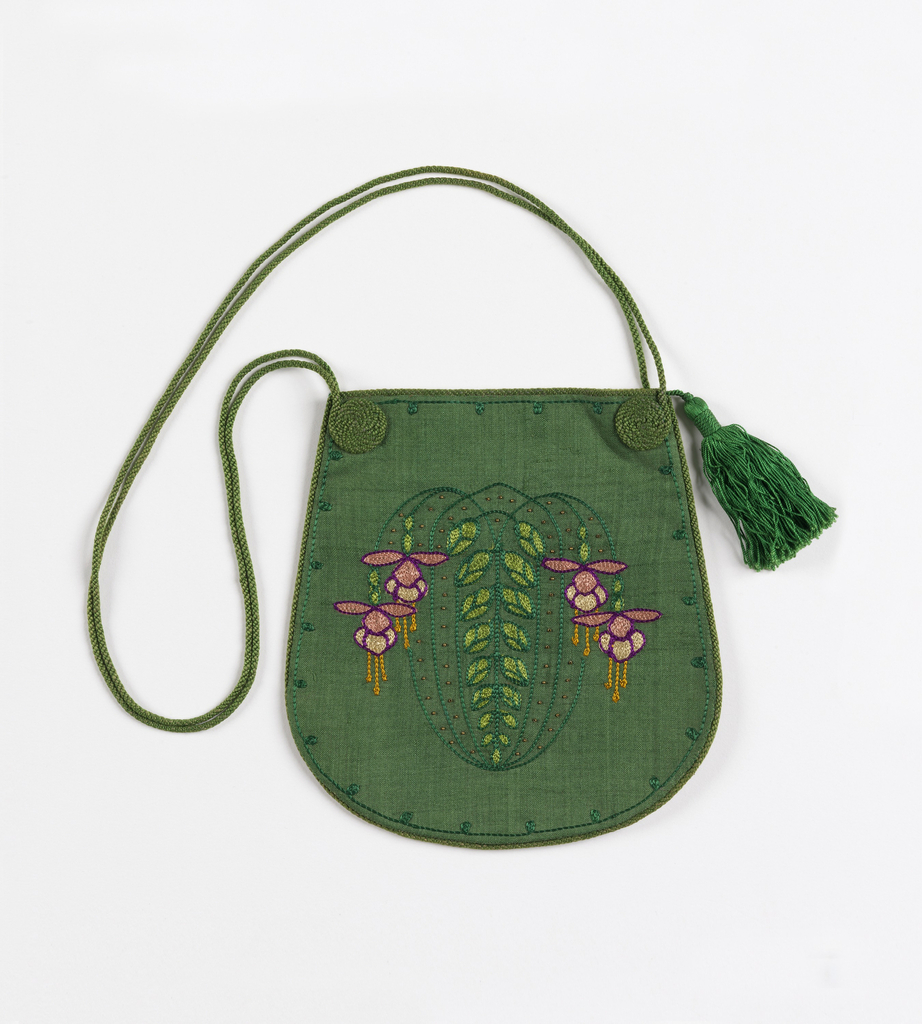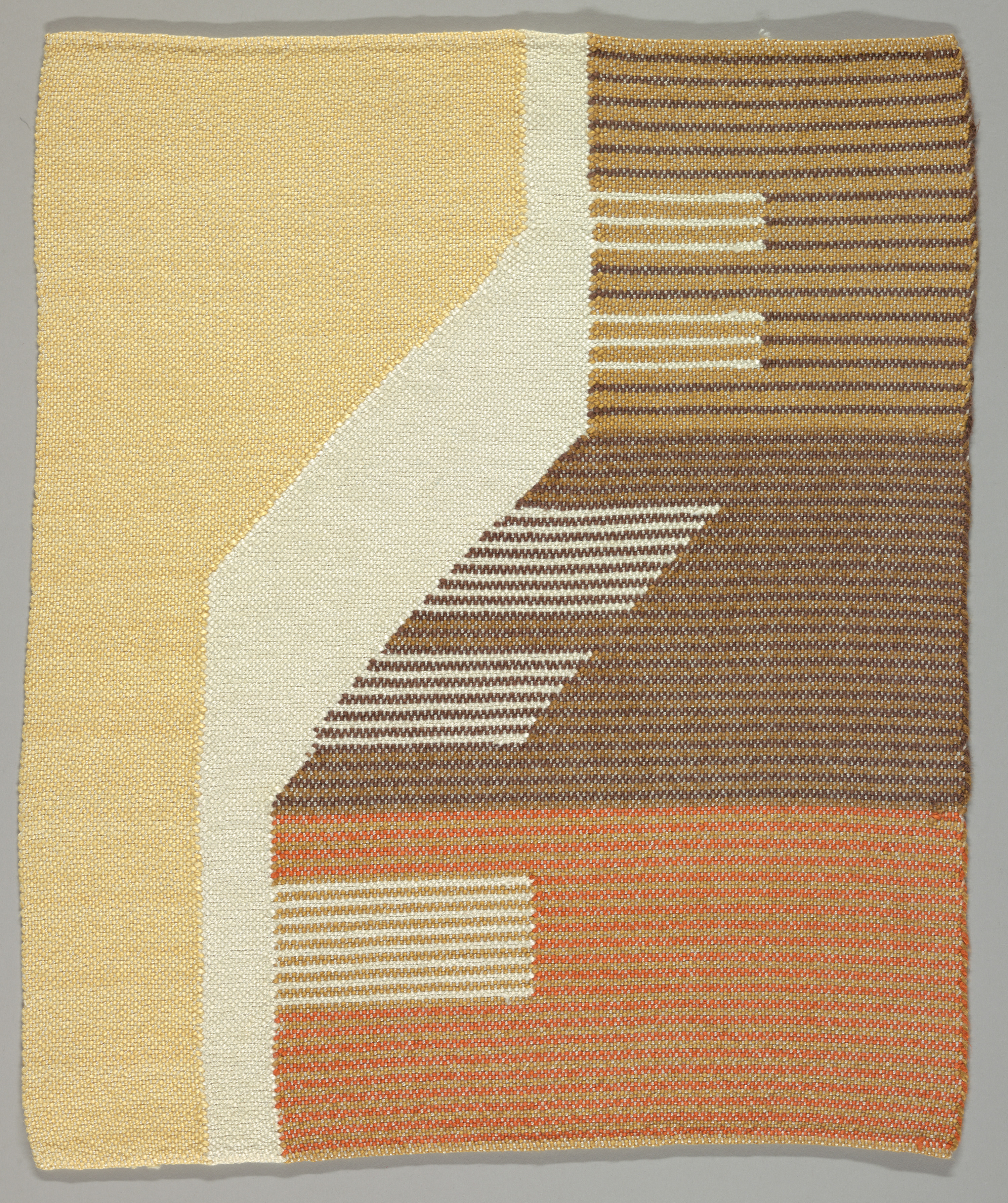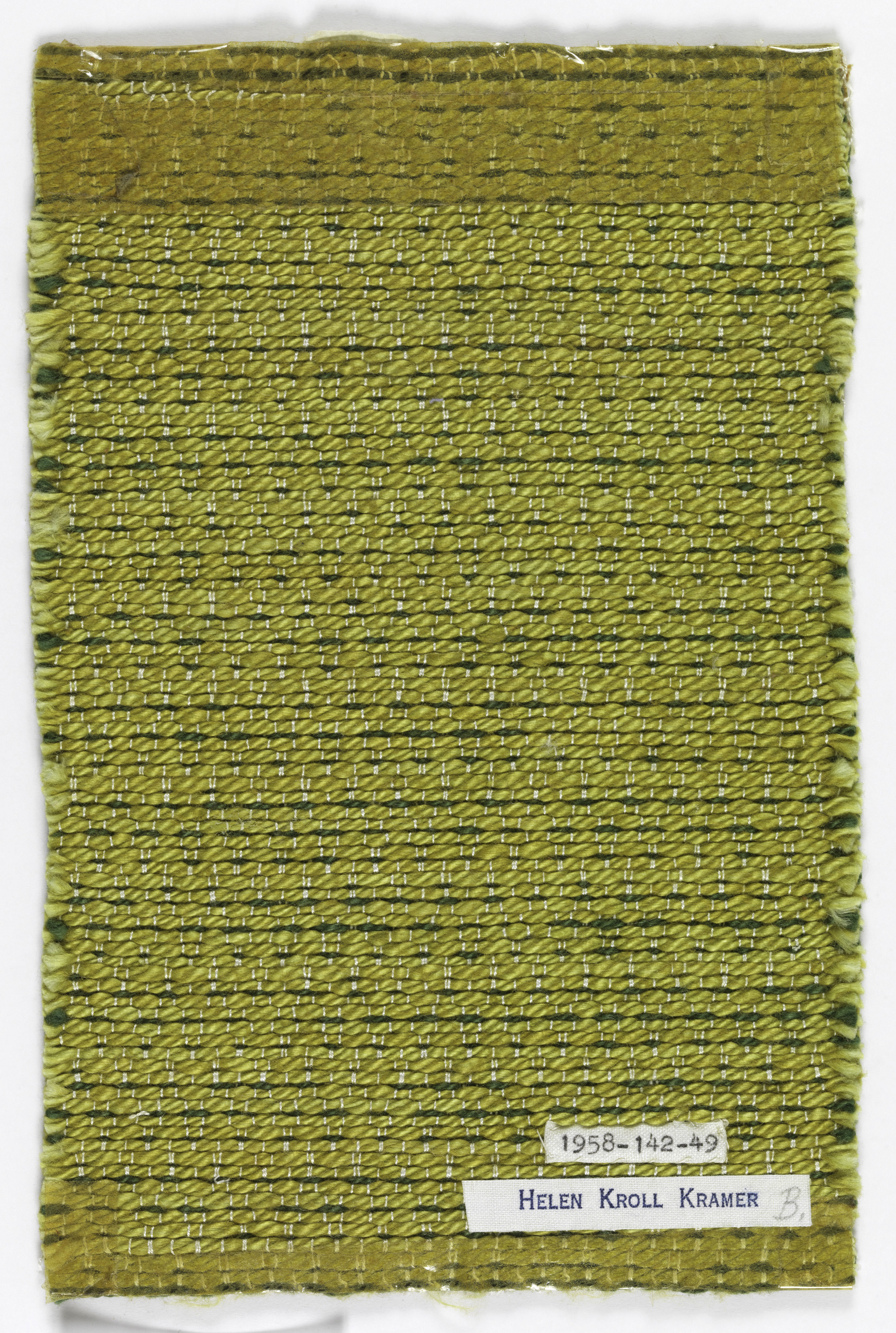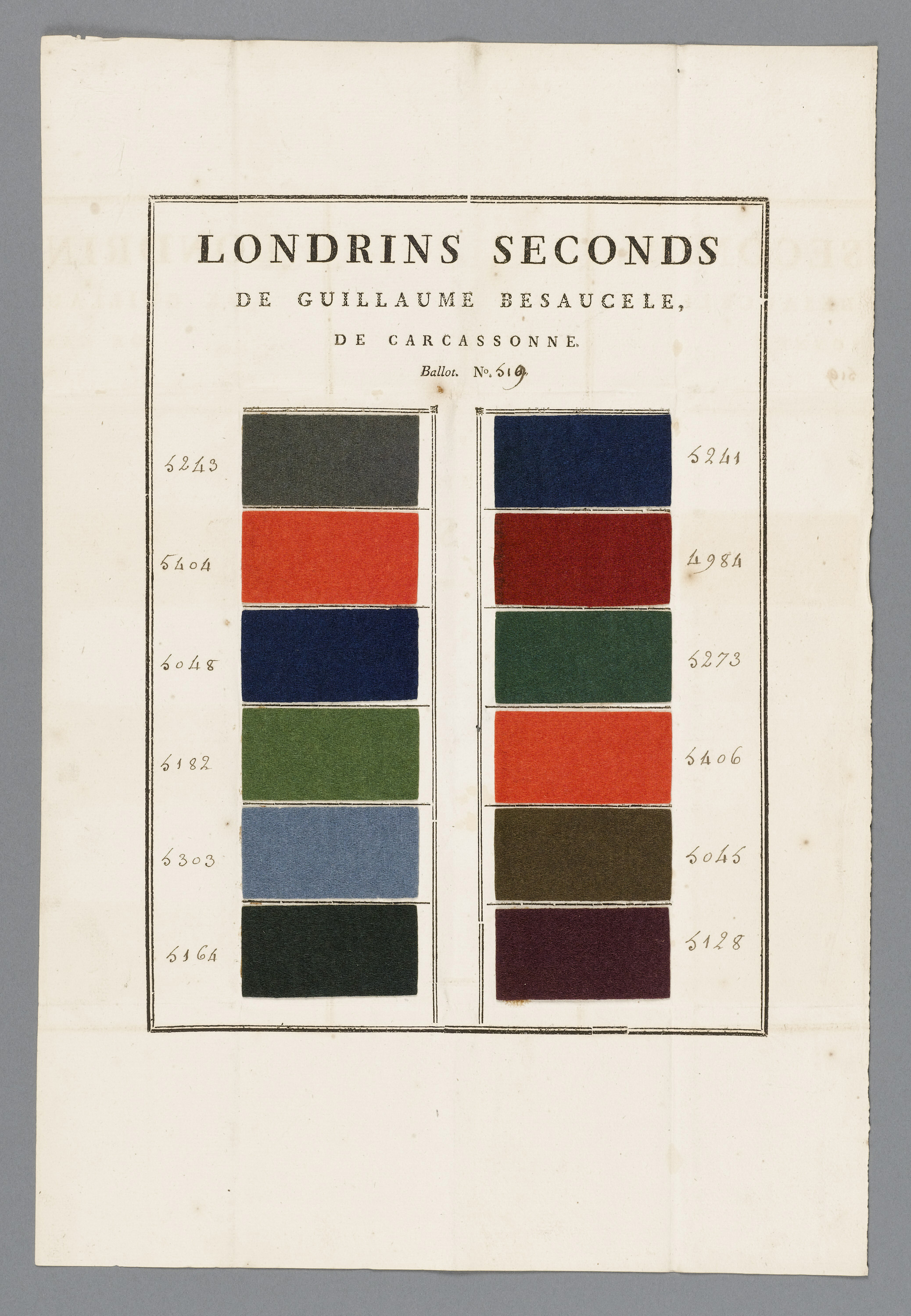Author: Rachel Pool This green purse is made from silk embroidery, plant fibers, and glass beads. A single tassel dangles from one side of the purse. Made between 1910 and 1912, the purse exhibits the Art Nouveau design style, indicated by the embroidered motif that displays organic patterns taken from nature, shown in the form...
This textile study sample was woven by Lydia van Gelder in preparation for a larger wall hanging, “Houses on a Street” that she created for the 1939 Golden Gate International Exposition in San Francisco. Serving as a diminutive sample for the larger piece, it is tapestry woven – double interlocked with extended dovetailing for shading....
This funky little chartreuse sample seems perfectly suited for an American mid-century interior. Woven by Helen Kroll Kramer between 1930-1958, it is composed of wool and rayon with contrasting bands of lime and pea green. Kramer is renowned as a successful 20th century artist and purveyor of handwoven textiles for upholstery and drapery. With her...
Early in the eighteenth century, France was eager to imitate British success in exports of woolen textiles, especially to the Levant, an area roughly defined as a region of the eastern Mediterranean including Turkey and Egypt and points in between. By 1720, the French had vastly improved the quality of their woolens, and a system...
In past centuries sample books served to record patterns and motifs used in decorative arts and were carefully guarded by manufacturers against espionage attempts from competitors. In this panel, held in conjunction with Multiple Choice: From Sample to Product. Cooper-Hewitt invites you to join intellectual property lawyer Harley Lewin, and Susan Posen, CEO of Zac...
Join modern design firms Maharam, Design Within Reach and Tricycle as they share their companies’ approaches for marketing design. Held in conjunction with the exhibition Multiple Choice: From Sample to Product, this panel will explore current marketing trends such as consumer customization and online outreach.
Exhibitions are hard work. At Cooper-Hewitt they are planned years in advance and involve several departments cooperating towards a common goal of creating the best exhibition possible. Once the research is completed, the objects chosen, the didactic panels and brochure text written, and the exhibition design layout completed, there is still one very important step...





